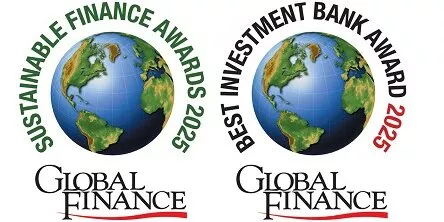
One of the world’s biggest utility-scale battery energy storage systems to be built in Australia
Shell Energy Australia and Eku Energy, the latter being a company initially established by Macquarie’s Green Investment Group, are developing solutions for Australia’s green revolution
Even in famously temperate Australia, the sun does not shine all the time. The intermittent nature of renewable energy is a key challenge in the journey to net zero: how can power grids continue to ensure that energy is available when it is needed?
As the transition away from fossil fuels gathers pace, battery storage systems will be crucial for maintaining reliable power supplies and the momentum of the energy transition.
Electricity grids will need to add energy storage solutions including industrial-scale batteries to facilitate a full transition to renewable energy such as solar and wind power. And as more industrial processes go electric, batteries will be essential in providing energy when the sun isn’t out or the wind isn’t blowing.
Battery energy storage system (BESS) capacity is set to expand rapidly. Energy storage installations globally are projected to reach 411 gigawatts (GW), or 1,194 gigawatt-hours (GWh) by the end of 2030 – 15 times the 27GW/56GWh of storage that was online at the end of 2021 – according to research by Bloomberg New Energy Finance (BNEF).1
Australia has demonstrated it is at the forefront of this trend with recent launch of the Rangebank Battery Energy Storage System project. The utility-scale BESS, with a capacity of 200 megawatts/400 megawatt hours, will be built in Cranbourne West, Victoria by Shell Energy Australia and Eku Energy.
Expected to be completed in late 2024, the project will increase Victoria’s renewable energy hosting capacity while providing essential system services aiming to support the safe, secure and reliable operation of Australia’s power system. Once fully operational, the Rangebank BESS will have the storage capacity to power the equivalent of 80,000 homes for an hour during peak periods.2
“Grid-scale batteries are essential to provide a reliable and flexible supply of electricity that consumers and businesses require as economies transition to a low-carbon future. This project combines technical, digital and financial innovation to maximise the benefit to the community,” said Dan Burrows, Head of Asia Pacific and Chief Investment Officer at Eku Energy.
Societe Generale acted as financial adviser, mandated lead arranger and hedging provider for the development and greenfield project financing of the Rangebank BESS.
“Battery storage systems are a critical part of the energy transition, and we were delighted to assist Shell Energy Australia and Eku Energy to arrange financing for this project. First-of-a-kind transactions like this are a key differentiating factor for our global Energy + team and provide a template for further development in this fast-growing sector. Combined with our significant investments in the renewable energy sector in Australia, we are confident that this landmark BESS project will have a positive impact on Australia’s energy system and the country’s commitment to reaching net zero by 2050,” said Ben Arnott, Head of Energy + Group for Australia at Societe Generale.
While the Rangebank BESS was one of the first standalone battery financings completed in Australia, the bank has built a strong track record in battery projects globally. Recent successes include the 2022 financing for India’s first round-the-clock energy project. Led by ReNew Power, the deal comprises new wind farms, solar facilities and battery storage installations across the country. And earlier this year Societe Generale closed a landmark BESS project financing in California for Hecate Grid, an independent power producer.3
“Australia is accelerating action to meet its 2030 emissions target, and we see huge potential in the expansion of clean and renewable energy. We are committed to supporting clients and investors in developing opportunities in solar, wind, energy storage and related areas,” added Marie Vinnell, Head of Natural Resources & Infrastructure for Australia and Head of Infrastructure for Asia Pacific at Societe Generale.
The Australian Energy Market Operator has predicted that 63% of coal-fired energy generation will be retired by 2040, with expectations it will be replaced by 26-50GW of renewable energy generation across wind and solar.4
As Australia ramps up its effort to deliver a cleaner energy future, investments in the renewables ecosystem, including energy storage, must grow in tandem.5 Utility-scale developments like Rangebank provide a template for further expansion.
1. https://about.bnef.com/blog/global-energy-storage-market-to-grow-15-fold-by-2030/
4. https://utilitymagazine.com.au/australias-big-batteries-new-storage-to-match-the-rise-of-renewables/




